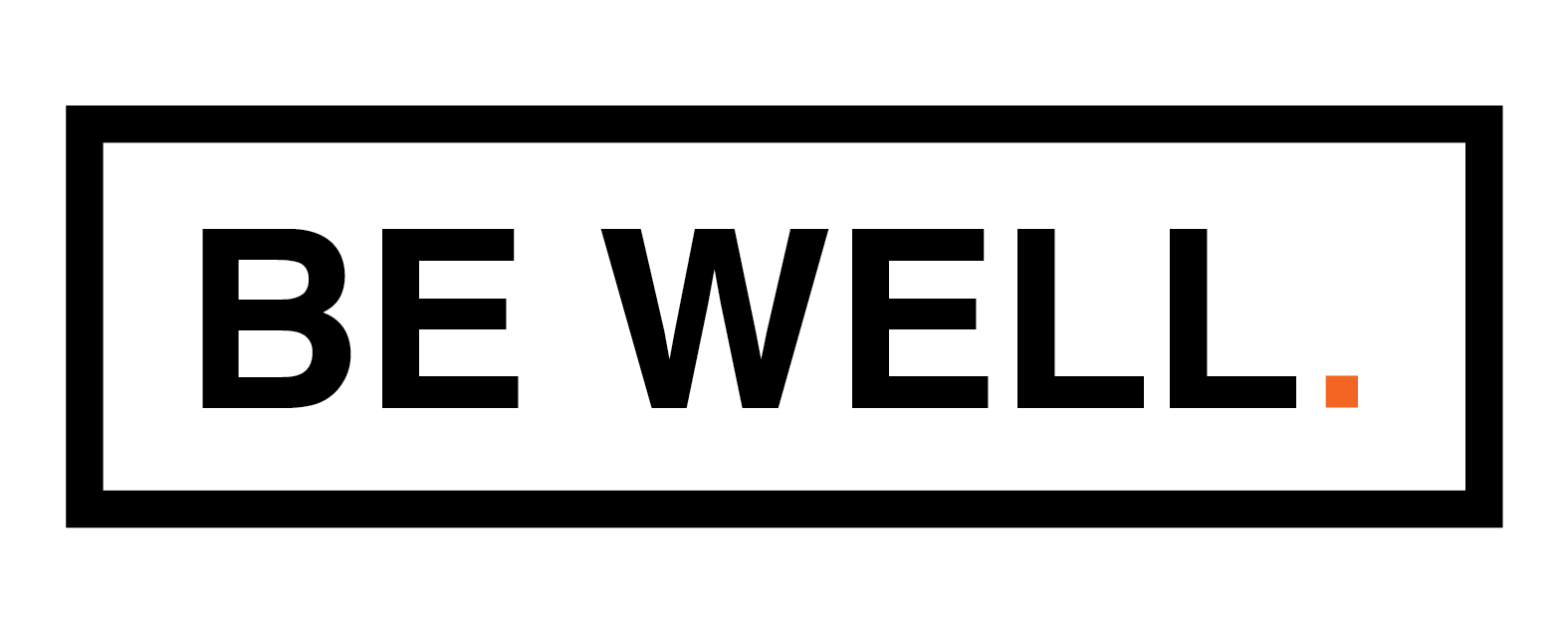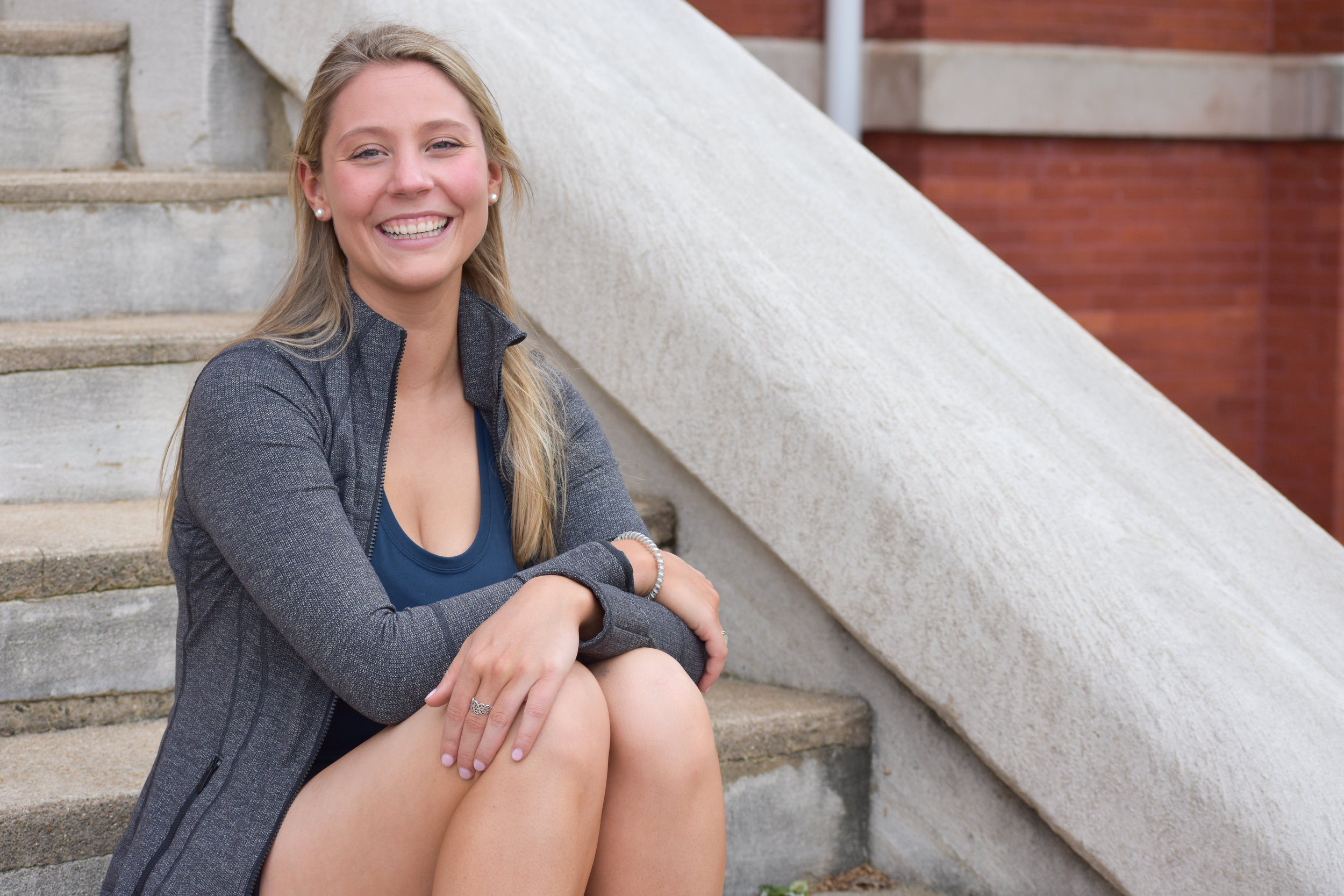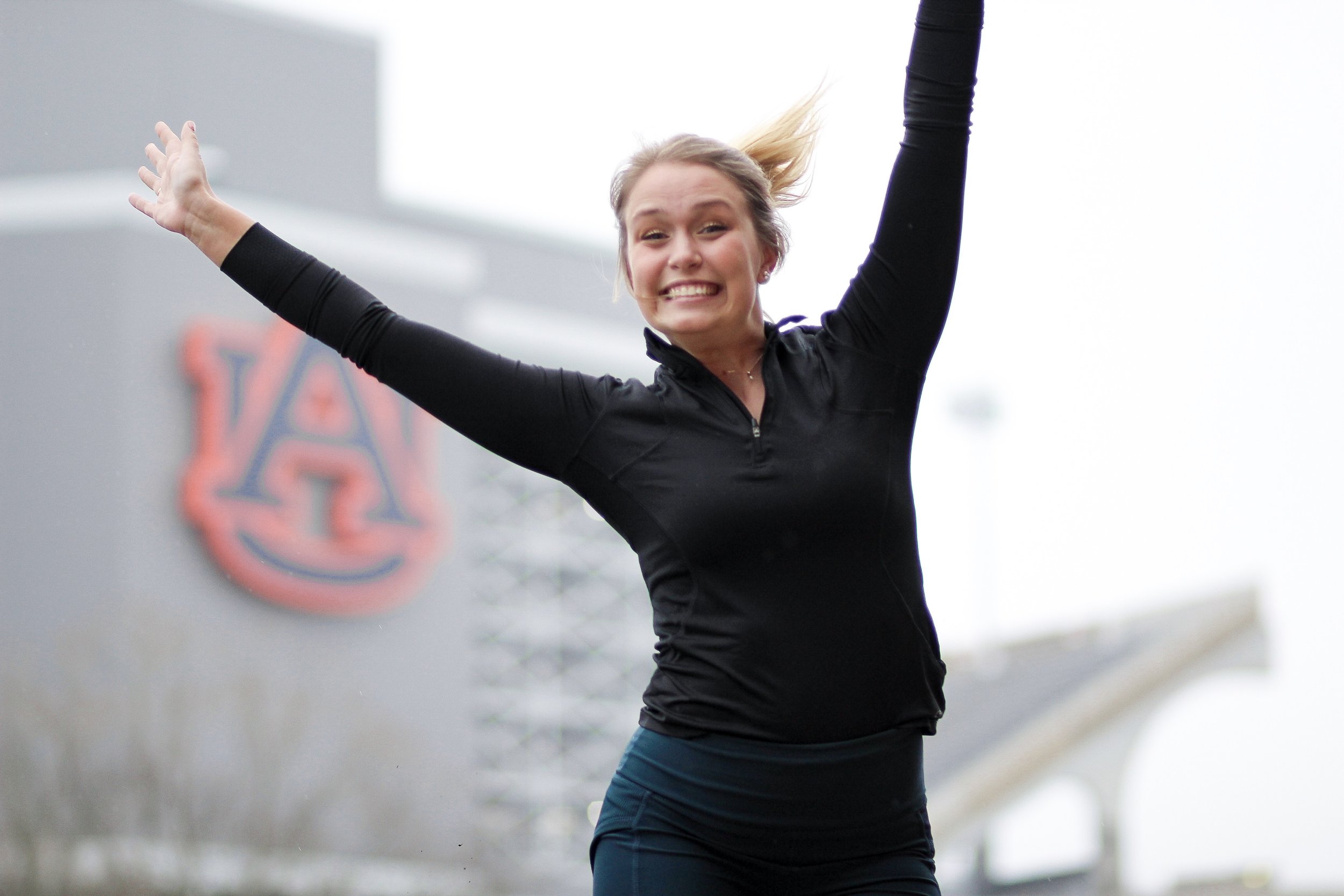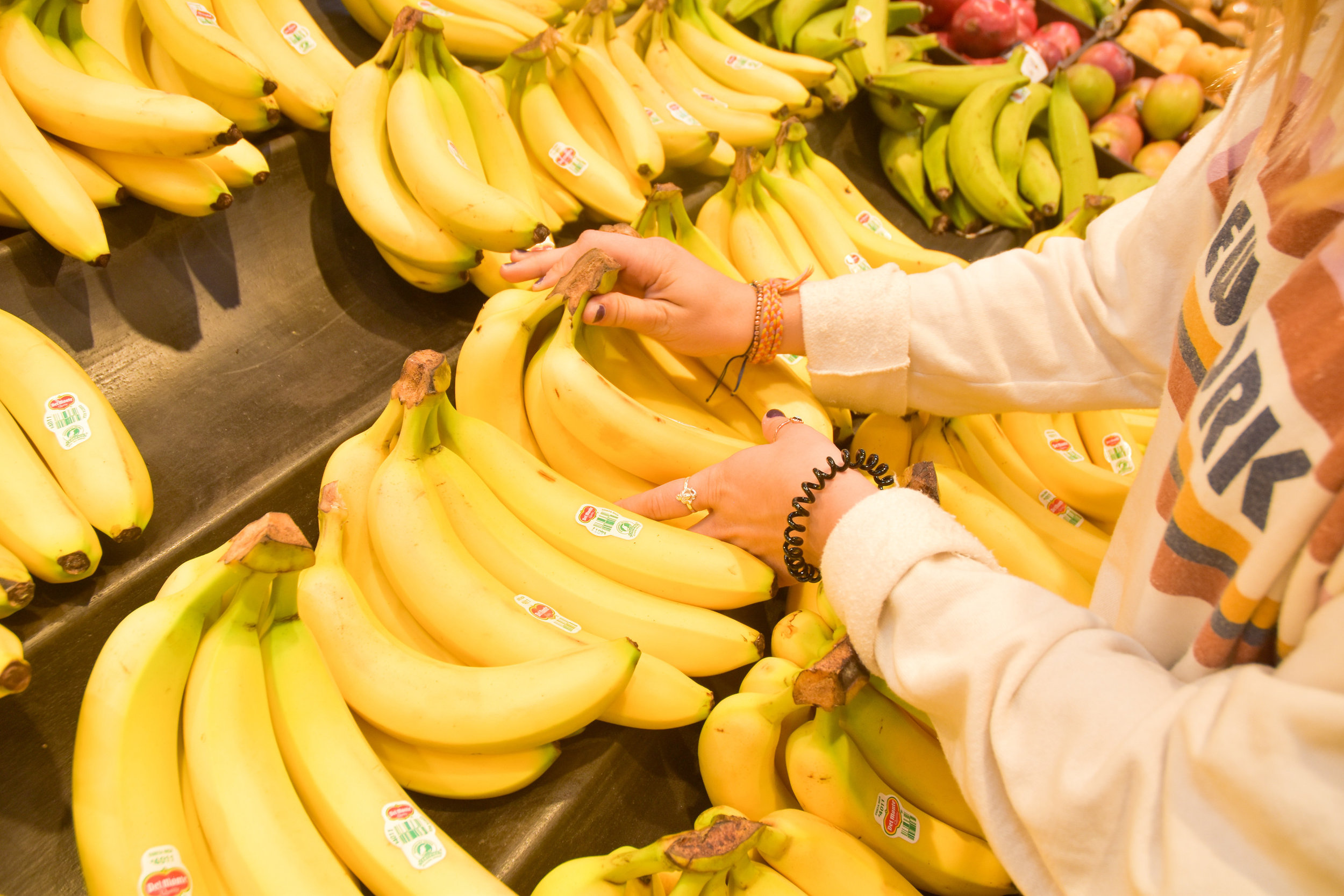Natalie's Journey With Crohn's Disease

At thirteen, junior Natalie Hill was diagnosed with Crohn’s Disease.
Today, she’s on track to becoming a registered dietitian to help others manage their health through nutrition. Talk about making lemons into lemonade! We sat down with Natalie to learn more about her journey and goals for the future.
Be Well: When did you first find out you had Crohn’s disease?
Natalie Hill: I was diagnosed the summer after my eighth-grade year. I was at lacrosse camp and was having really severe pains on my side by my appendix, so I went to the athletic trainer — I was at Clemson, actually — and he was pushing around on my stomach trying to figure out what was going on. He told me I “definitely had appendicitis” and needed to go home. My dad drove from Atlanta at 2:30 in the morning and we went to the hospital. They did a whole bunch of tests and told me I had something going on in my large intestine, but they didn’t really know what. I had an MRI, CT scan, multiple ultrasounds, and bloodwork — and they all came back indeterminate. The doctors referred me to a Gastroenterologist, where I was initially diagnosed with ulcerative colitis (which presents similarly but is in a different part of the intestine). I found out that I had ulcers in my colon right next to my appendix, which is why I was in so much pain.
The way that we found out it was Crohn’s was because my weight was dropping super quickly. I couldn’t keep any weight on at all. Then there was the nausea, but the doctor would tell me it was just acid reflux and to take Tums. I would also come home from school and feel freezing, but my body was hot to the touch. My mom would tell me I felt like I had been sitting in the oven. It was an every night thing, so that was awful. It really started to affect my schoolwork. Overall, I didn’t realize at the time how serious my symptoms were. The doctors ignored them for so long that eventually there was so much blood in my stool that it looked like red Kool-Aid when I used the bathroom. I know that’s super graphic, but that’s how it presents for most people. It’s the point when people realize that it’s serious enough to warrant going to a specialist.
BW: For those who don’t know, can you talk a little bit more about what Crohn’s disease is?
NH: Crohn’s disease is an autoimmune disease. It isn’t curable and there’s not a whole lot known about it, honestly. They think there’s a genetic component as well as environmental triggers. There has been a lot of research recently, but it hasn’t always been well-known. Now when I tell someone I have Crohn’s, they almost always have family members or friends who have it too. But it’s not something people talk about a lot, because you can’t look at someone and know they have Crohn’s disease.
The symptoms for most people are a lot of the stuff I talked about before. Fatigue is something I have to manage, but it isn’t something I experienced right off the bat. Joint pain is also a big part of Crohn’s. Even though it’s a disease that is concentrated in the gastrointestinal tract, it really affects your whole body. My joints will get stiff and sore, and sometimes if it’s really bad, they’ll be sore to the touch.
BW: How have you managed your disease over the years?
NH: Initially, my doctors started me on pills. They were SO big. And bright blue. It’s really a medicine for ulcerative colitis, and they worked for a while, but they stopped working and I was put on three different pills. One of them, which is prevalently used as a cancer drug, made me so sick that I would throw up within a couple hours of taking it. They put me on an anti-nausea drug with it, but that didn’t work either. Eventually, they wanted to put me on infusions. It’s like getting chemo. You have to sit there for hours while they do it, and I didn’t want to miss that much school.
At that point it was my junior year of high school, and it didn’t feel like a sustainable treatment route. I decided to start independently researching options and came across the specific carbohydrate diet. It’s very similar to paleo — essentially you can’t have refined sugars, starches, or grains. It helped immensely. I felt so much better, and in a weird way I felt lighter. I had so much more energy. I’ve been managing my diet that way since my junior year of high school, but sophomore year of college was high-stress and I strayed from it a little. I started feeling worse and my doctors wanted to put me on shots. I had a terrible reaction to the Humira shots, and they didn’t help my symptoms at all — they made me feel worse. Eventually I went back to eating in a way that wouldn’t hurt my stomach.
BW: What does your management of the disease look like today?
NH: It’s been more of a lifestyle change than just adjusting my diet. I’m good at taking how I’m feeling into account. When I started college, I went a little crazy, but I think we all do. Now I’m more laid back as a person, but I’m also more conscious about what and where I eat. I take a lot of herbal supplements like turmeric and digestive enzymes to balance my adrenal hormones. I have to manage my stress because my symptoms are triggered by stress. I try to get regular exercise, whether it’s walking to class or going to a class at The Rec. It definitely helps me to be active.
BW: What have you learned about yourself through your journey with Crohn’s?
NH: I’ve learned to focus on myself more. I tend to put other people first, but I’ve learned to put my needs first.
Growing up, I was always busy and overscheduled, and I liked it that way. I functioned best having something going on all the time. Now, I’ve learned to take a step back. I’ve learned to say no to things when I don’t feel well. When I was first diagnosed, I would overexert myself all the time, but I don’t do that anymore.
I’ve also learned how strong of a person I am. A lot of people would have just shut down with a diagnosis like this. Learning that you’re going to have to deal with a disease that’s pretty serious for the rest of your life at such a young age can be difficult to cope with. Finally, I don’t self-pity.
“It helps me put into perspective that everyone has something they are going through, whether it’s Crohn’s, dyslexia, migraines, whatever.”
Once you take time to realize that, it changes your perspective drastically. It took having Crohn’s for me to really understand that.
BW: How has your journey shaped your future career?
NH: I always knew that I wanted to help people. I’m extroverted, so I knew that sitting at a desk and not having contact with people wasn’t something I wanted to do. Before I was diagnosed, I thought I’d go to college for something like English, psychology, or history. I never thought I’d do anything medical — I’m not a math and science person. I always liked science, but I never thought it would be what my career would be focused on.
I thought I wanted to be a lawyer for a really long time. I may still do that, but having a disease that impacted my life so much really changed how I wanted to help people. Changing my diet and my lifestyle improved my life so drastically. It was like night and day. It shifted my path towards helping people through nutrition, so I’m studying nutrition dietetics.
“People always ask me what dietetics is and I just say, ‘Nutrition,’ and they’re like, ‘Oh!’”
Dietetics is essentially a path to working in a hospital, private practice, or as a wellness consultant. I’ll finish my undergrad in four years and then will complete an internship. It’s hands-on, on-the-job experience which helps you figure out what your focus will be. It’s very similar to doing a residency in medical school. I’ll probably move on to get my master’s degree, too. I’m not 100% sure what I want to do, but I’m leaning towards private practice over a hospital. I think I’d like to do pediatric or prenatal, making sure expectant mothers are taking the supplements they need.
Want to share your health and wellness story with us? We’d love to hear it. Reach out to us on social media @AuburnCampusRec.
Be well, Auburn.
Photography: Kyleigh M.
Editor in Chief Emeritus (2018/2019)
Born and raised in the D.C. Metro Area, Kyleigh followed her gut 750 miles away from home to Auburn, Alabama. Now a senior in public relations, she can confidently say it’s the best decision she has ever made. Passionate about health and wellness and interested in marketing, working at The Rec is the perfect fit for her.
Outside of The Rec, Kyleigh is working toward big goals, like visiting all 50 states before she’s 25 (12 to go, if you’re curious) and getting her registered yoga teacher certification. She has an insatiable appetite for adventure and loves to travel, learning about new cultures and herself in the process. When she’s not daydreaming about future trips, she can be found in yoga class, visiting the cows off Lem Morrison, or making sure her friends are fed. Kyleigh doesn’t exactly know what she wants to do when she graduates, but she knows it won’t be boring.







